-
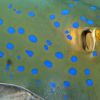 +3 +1
+3 +1Never-Before-Seen Method For Making The Color Blue Found in Stingray Spots
Bluespotted ribbontail rays create blue in a unique way, researchers report in a new study.
-
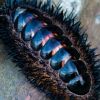 +29 +5
+29 +5Researchers Solve Mystery of The Sea Creature That Evolved Eyes All Over Its Shell
Small, shelled, and unassuming, chitons have eyes unlike any other creature in the animal kingdom.
-
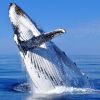 +24 +5
+24 +5Scientists had a 20-minute "conversation" with a humpback whale named Twain
In an unprecedented encounter, a research team successfully engaged in a "conversation" with a humpback whale named Twain.
-
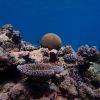 +30 +8
+30 +8Pacific coral reef shows historic increase in climate resistance
Coral reefs in one part of the Pacific Ocean have likely adjusted to higher ocean temperatures which could reduce future bleaching impacts of climate change, new research reveals.
-
 +23 +5
+23 +5How coral reefs can survive climate change
Astonishing results published from individual projects of the Tara Pacific expedition studying coral reefs – the entire dataset is made publicly avail....
-
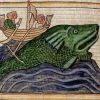 +27 +6
+27 +6Porphyrios
Porphyrios (Greek: Πορφύριος) was a large whale that harassed and sank ships in the waters near Constantinople in the sixth century.
-
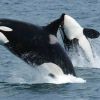 +27 +6
+27 +6These 4 Mind-Blowing Facts Show Just How Smart Orcas Really Are
In and around the Strait of Gibraltar that divides Spain from Morocco, orcas are behaving in odd and aggressive ways.
-
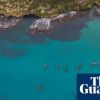 +19 +4
+19 +4Are New Zealand’s marine heatwaves a warning to the world?
As seas around Aotearoa heat at an unparalleled rate, scientists are starting to understand what it might mean for marine ecosystems
-
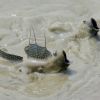 +14 +3
+14 +3A blinking fish reveals clues as to how our ancestors evolved from water to land
An unusual blinking fish, the mudskipper, spends much of the day out of the water and is providing clues as to how and why blinking might have evolved during the transition to life on land in our own ancestors. New research shows that these amphibious fish have evolved a blinking behavior that serves many of the same purposes of our blinking.
-
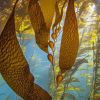 +15 +4
+15 +4A Hidden Underwater Resource Is Worth Way More Than Expected, Study Reveals
Researchers have just calculated the value society gets from a common but hidden underwater resource, and found it's way higher than we ever expected.
-
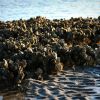 +16 +3
+16 +3Can Interactive Mapping Tools Guide Shellfish Restoration?
Researchers in North Carolina have developed software that can determine the best place to rebuild oyster habitats, in an effort to rejuvenate the marine population.
-
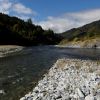 +15 +4
+15 +4To save salmon, U.S. approves largest dam removal in history
A U.S. agency seeking to restore habitat for endangered fish gave final approval on Thursday to decommission four dams straddling the California-Oregon border, the largest dam removal undertaking in U.S. history.
-
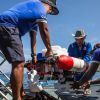 +10 +2
+10 +2Inside Alphabet X’s new effort to combat climate change with seagrass
A previously unrevealed program would use cameras, computer vision, and machine learning to track the carbon stored in the biomass of the oceans.
-
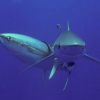 +14 +3
+14 +3Tuna Have Been Seen Rubbing Themselves Against Sharks And We Don't Blame Them
Imagine you're a big yellowfin tuna, miles from shore out in the blue, swimming around carefree, until you start to feel a little itch near your eye.
-
 +4 +1
+4 +1Abandoned WWII Shipwreck Has Altered The Ocean's Microbiology For 80 Years
There's a certain romance and mystique associated with shipwrecks when seen as ancient artifacts hiding in the gloom.
-
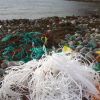 +19 +2
+19 +2740,000km of fishing line and 14 billion hooks: we reveal just how much fishing gear is lost at sea each year
Each year, enough fishing line to circle the Earth 18 times is lost at sea. This not only harms marine life, but also the livelihoods of fishers worldwide.
-
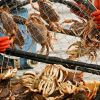 +18 +3
+18 +3Alaska Canceled Snow Crab Season for the First Time Ever Because All the Crabs Are Gone
For the first time in history, the Alaska Department of Fish and Game has canceled snow crab season due to the dwindling numbers of crabs available. This decision follows a report released in August that showed that snow crab abundance in Alaska is on a steep decline, with stocks down 90 percent in the last two years. Researchers have yet to come up with a cause for this decline, but they have already agreed—climate change is a main factor.
-
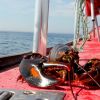 +10 +1
+10 +1After 80% population drop in 4 years, Alaska cancels snow crab season in unprecedented move
Alaska officials have canceled several crab harvests in a conservation effort that sent shock waves through the the crabbing industry in the region.
-
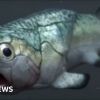 +26 +3
+26 +3World's oldest heart found in prehistoric fish
Researchers have discovered a 380-million-year-old heart preserved inside a fossilised prehistoric fish. They say the specimen captures a key moment in the evolution of the blood-pumping organ found in all back-boned animals, including humans. The heart belonged to a fish known as the Gogo, which is now extinct.
-
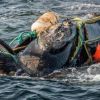 +12 +1
+12 +1US lobster put on ‘red list’ to protect endangered North Atlantic right whales
Lobster nets and pots have become such a threat to the survival of critically endangered North Atlantic right whales that the crustaceans have been “red-listed” as seafood to avoid by a major fish sustainability guide. Fewer than 340 of these whales exist today, including only 80 breeding females. The population is estimated to have dwindled by 28% over the past decade.
Submit a link
Start a discussion




















